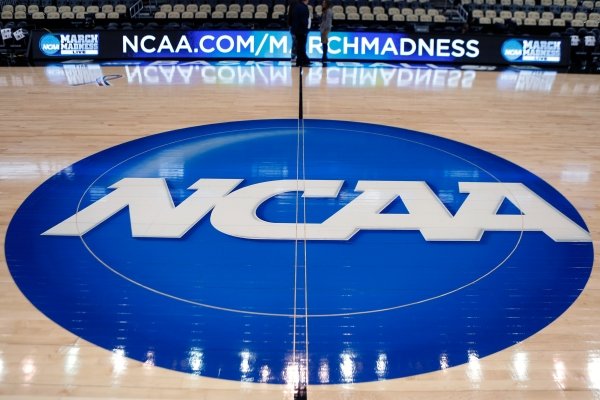LITTLE ROCK — Although unwilling to embrace the betting philosophy of a superb thoroughbred handicapper at the racetrack, Kim Brazzel’s aggressive approach is recommended when filling out the NCAA Tournament bracket in the office pool.
“Take a stand,” the late friend chided innumerable times in the press box at Oaklawn Park and Churchill Downs.
The conservative approach — boxing horses in an exacta wager — irritated him mightily. For those unfamiliar, a $1 exacta box with four horses yields 12 possible combinations, but Brazzel reasoned that 11 of them were sure losers.
Brazzel’s approach was to zero in on one horse, bet that steed to win, and then purchase exacta and trifecta tickets that could only be cashed if his pick finished first.
With that in mind, approach the 68-team basketball tournament knowing that one, maybe more, of the No. 1 seeds will lose before the regional winners gather in Minneapolis, but that 21 of the 34 champions since 1985 have been No. 1 seeds, including nine of the last 12, and that a dozen other No. 1s played for the championship.
Arkansas was a No. 1 seed when it won the championship in 1994.
Still, during that same period, only in 2008 did the four No. 1s — Kansas, Memphis, North Carolina and UCLA — survive the first four rounds and only five other times did three No. 1s reach the Final Four. In fact, 57 teams seeded 2, 3 or 4 have reached the Final Four during those years, vs. 56 No. 1s.
In other words, history says the winning tactic in filling out the bracket is tricky — “taking a stand” against a No. 1, but endorsing most of the favorites.
All that said, which of the teams on the top line in the regionals — Duke, Virginia, North Carolina or Gonzaga — is the most vulnerable?
The tendency might be to circle Gonzaga. After all, the Zags enter the tournament off a 13-point loss to Saint Mary’s in the finals of the West Coast Conference tournament. Losing to Duke in the Atlantic Coast Conference championship is one thing, but falling to an 11-game loser in a conference with the likes of Santa Clara and Pepperdine is another.
Strangely, that 60-47 loss to a team that Gonzaga had beaten by 48 and 11 reminded of Arkansas’ 1994 team and sold me on the ‘Zags making the Final Four. In the SEC Tournament semifinals in Memphis, No. 1 Arkansas made 8-of-28 3-point attempts, Kentucky was good on 16-of-36, and the Wildcats won by 12.
Three weeks later in Charlotte, trophy time for Arkansas.
Last week, No. 1 Gonzaga made 2-of-17 3s in the loss to Saint Mary’s in what coach Mark Few called it “our worst offensive game of the year …”
The shoot good you win, shoot bad you lose refrain explains many an upset and virtually every team in the tournament has a player or two capable of a big game.
A year ago, Maryland Baltimore County was the first 16 seed to eliminate a No. 1. The Retrievers made 12-of-24 3s and Virginia was good on 4-of-22. Last week, Virginia was 5-of-24 from long range in an ACC Tournament loss to Florida State.
Closer to home, Arkansas made more than half of its 76 3-point attempts during a four-game stretch that included a close loss at Kentucky and three Ws, but was 4-of-16 in its loss to Florida in the SEC Tournament.
Even the best long-range shooters are streaky — just a few weeks ago, the world’s best, Steph Curry, missed a dozen in a row in a loss to Orlando — and predicting one extreme or the other is darned near impossible.
That groundwork in place, pencil in Duke as the most likely No. 1 to win four straight. With Zion Williamson in the lineup, the Blue Devils are the most talented team and, therefore, are best equipped to survive 40 minutes of sub-par shooting.
Down to Virginia and North Carolina, the Tar Heels are the personal pick to fall short. Surely one of the ACC’s three No. 1 seeds will lose and North Carolina got a lot of mileage out of two Ws over Duke — one when Williamson played one minute and three North Carolina players made 31-of-48 from the field — and a second when Williamson did not play at all.
Besides, North Carolina is likely to face two seed Kentucky or three seed Houston in the Midwest final and both are capable.
As for the seven SEC teams involved, ignore Tennessee’s 20-point loss to Auburn in the SEC Tournament title game and expect the No. 2 seed Vols to go deeper in the tournament than the No. 5 seed Tigers.
LSU, a three seed, is hard to read with coach Will Wade nowhere to be found, but the Tigers should make the Sweet Sixteen on talent alone.
Although Florida is seeded lower than any of the other conference teams at 10, the Gators might have a better chance than Mississippi State (5) and Ole Miss (8) to get past the first weekend simply because they play superb defense.

